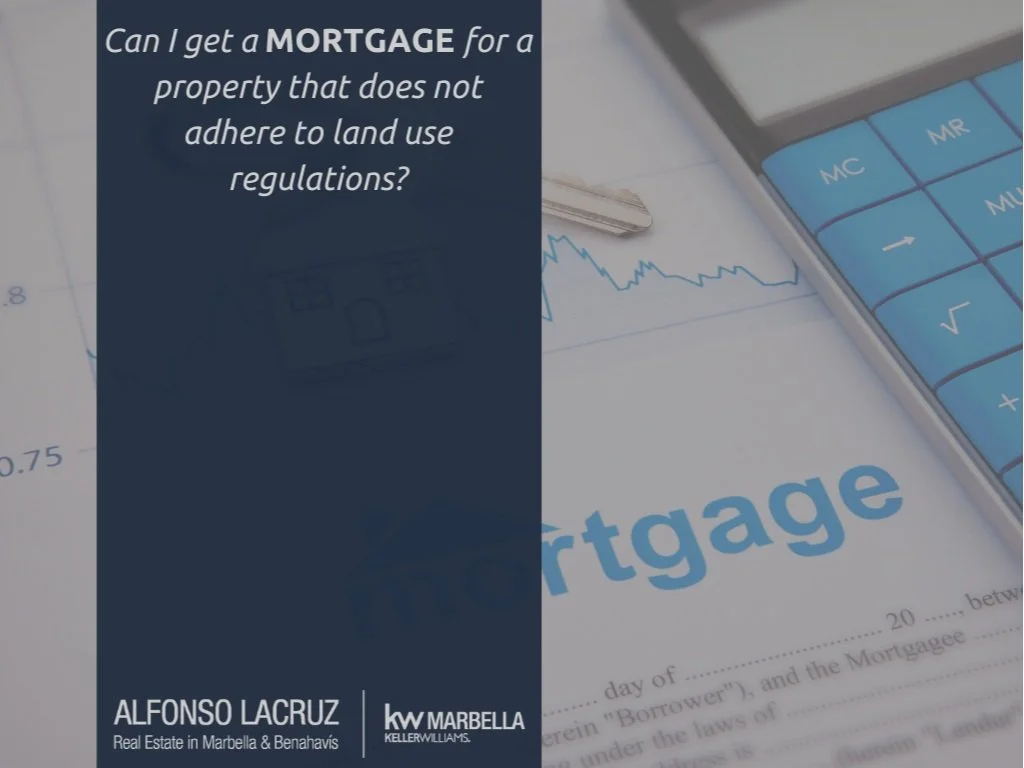A while ago we analysed what is considered a property that does not adhere to land use regulations. But can you get a mortgage for a property in this situation?
Generally speaking, it can be difficult to get a mortgage approved for these properties because banks do not want to take any risks and as these properties can be considered “illegal”. The bank doesn´t consider them adequate collateral to grant a mortgage. However, there are cases where banks have agreed to a mortgage, depending on the reason why the property did not adhere to land use regulations. In this article we will talk about cases where this has been possible - at least in Marbella, where there are approximately 18.000 properties with this problem, so the situation is a bit different.
What properties, that don´t meet the regulations, are banks approving mortgages for?
When speaking to banks about this subject, they respond that it depends on the surveyors and the caveats they include in their property evaluations. The caveats are categorised into major issues, for which no mortgages are granted as the property is not sufficient guarantee, and minor issues, which the bank will look into in more detail and may ask for additional guarantees.
Having received this information from the banks, we contacted some surveyors with years of experience on the Costa del Sol that more or less confirmed what the banks were saying: Properties built on public domains, plots for green areas, plots planned for parks and gardens or simply not planned for residential use will receive a serious warning on the valuation report that will block the granting of a mortgage, while properties built on residential land, for which the surveyors consider that the infraction is not that serious, will receive a minor warning that will open the door for the banks to study that specific mortgage.
** Given that each case is different and being this text just a simple touch on the issue, we recommend consulting your lawyer regarding the contents of this article.

